Foreword
In March 2019, the World Wide Web turned thirty, and October will mark the fiftieth anniversary of the internet itself. These anniversaries offer us an important opportunity to reflect on the internet’s history, but also a chance to ponder its future.
While early internet pioneers dreamed of an internet that would be open, free and decentralised, the story of the internet today is mostly a story of loss of control. Just a handful of companies determine what we read, see and buy, where we work and where we live, who we vote for, who we love, and who we are. Many of us feel increasingly uneasy about these developments. We live in a world where new technologies happen to us; the average person has very little agency to change things within the current political and economic parameters.
Yet things don’t have to be this way. In a time where the future of the internet is usually painted as bleak and uncertain, we need positive visions about where we go next.
As part of the Next Generation Internet (NGI) initiative – the European Commission’s new flagship programme working on building a more democratic, inclusive and resilient internet – we have created this “visions book”, a collection of essays, short stories, poetry and artworks from over 30 contributors from 15 countries and five continents. Each contributor has a unique background, as most were selected via an open call for submissions held last autumn. As such, the book collects both established and emerging voices, all reflecting on the same crucial questions: where did we come from, but more importantly, where do we go next?
The NGI hopes to empower everyone to take active control in shaping the future: the internet does not just belong to those who hold power today, but to all of us.
Accessible VersionInternet timeline
This timeline shows some of the internet's most important milestones so far, and speculates on where we might go next…
First undersea cable successfully laid across the Atlantic
Sputnik launched, heralding in the era of satellite communications
ARPANET, the network that formed the basis for the internet, launched
The first email is sent
Bob Kahn and Vint Cerf develop the pivotal TCP/IP protocols
The first spam email is sent
Most significant pre-WWW internet service Minitel launches in France
First use of an emoticon :-)
Sir Tim Berners-Lee first proposes the World Wide Web
First ever image uploaded onto the web
Bill Clinton and Swedish PM Carl Bildt first leaders to exchange emails
Amazon founded by Jeff Bezos
Match.com first online internet dating website goes online
First Ebay transaction (a broken laser pointer!) completed
Internet pioneer and Grateful Dead songwriter pens Declaration of the Independence of Cyberspace
Beijing passes first internet censorship legislation
Sergey Brin and Larry Page found Google
Jack Ma founds Alibaba.com, China’s largest e-commerce platform
Global internet community successfully navigates the Y2K Millennium Bug
The dot-com bubble bursts. Stock value drops $5 trillion in the next 18 months
Metallica sues file-sharing service Napster over copyright infringement
Wikipedia founded by Jimmy Wales
First Skype call
Mark Zuckerberg launches “the Facebook” on Harvard campus
Google Map launches
The internet reaches one billion users for the first time
The iPhone is launched
First use of a hashtag
First bootcamp for internet-addicted teenagers opens in South Korea
The enigmatic Satoshi Nakamoto publishes bitcoin whitepaper
More Chinese than American internet users
The Flat Earth Society relaunches online
“The Revolution will be live-streamed”- start of the Arab Spring
Death Star e-petition warrants White House response
Death of MSN Messenger
Edward Snowden reveals extent of government surveillance
Backlash over the hard-to-delete U2 album included in iPhone software update
The dress (is it black/blue, is it white/gold?) takes the internet by storm
Denmark appoints world’s first digital ambassador to Silicon Valley
Tech billionaires worth more than 1 trillion dollars
President Trump asks for covfefe on Twitter
WannaCry cyberattack cripples the UK’s NHS and others worldwide
Carole Cadwalladr exposes Cambridge Analytica’s global election meddling
GDPR is implemented
Yanny vs. Laurel 2018 version of ‘the dress’ unifies and divides
Half of the world’s population now online
Egg breaks record of most-liked Instagram post of all time
Pewdiepie reaches 80 million followers on Youtube
Pinterest bans anti-vaxx content, other platforms follow suit
Google cancels AI ethics board after one week following public outcry
Deepfake sparks geopolitical incident
Quantum breaks encryption as we know it
New regulation and companies kill surveillance capitalist business model
The internet now consumes one-fifth of global electricity
New satellite systems give everyone worldwide reliable internet access
Chaos in Sweden as blackout brings cashless society to a halt
Internet splits up in balkanised pieces, becoming the splinternet
VR allows everyone visit the long-lost seven wonders of the world
First AI gets elected into public office
Your video file from 1999 finally finishes downloading
We run out of lithium, and can’t make new smartphones
Exasperated historian tries to find primary internet sources
First successful Wikipedia brain implant
Last person who knows the “save button” signifies a floppy disk, dies
We pull the plug
How did we get here?
Enter
How did we get here?How did we get here?
“Vague, but exciting,” Mike Sendall scribbled in the margins of a proposal submitted by his employee Tim Berners-Lee on 12 March 1989. What came next is history: just a few years later, Berners-Lee’s self-described “hypertext thing” – designed to be used for information management within CERN – became the World Wide Web. Rapidly, the WWW grew from a niche academic network to a global audience (in an article below, journalist James Ball explains how the internet’s early infrastructure now has to support a network of billions – leaving it bursting at the seams).
The early years of the web were a whirlwind: new counter-culture collectives, grassroots communities and early start-up companies sprung up everywhere, each relishing the unbound opportunities of the new tech. The internet was to be completely open and free, with no control from above.
The spirit of those days is best captured in the late John Perry Barlow’s 1996 Declaration of the Independence of Cyberspace. The Declaration was largely a response to increased government interference on the web. While early internet pioneers feared centralised government control, few realised that this free-for-all techno-libertarian worldview also sowed the seeds for the extreme corporate centralisation of the internet we see today. Author Hussein Kesvani’s piece guides us through this history.
Today’s children have inherited an internet built by generations before them, yet continue to use it in new and imaginative ways. Artist Dries de Roeck asked school children in both Belgium and Senegal to “draw the internet”. Older children frequently drew YouTube and Instagram logos, reinforcing how centralised the internet has become. How did we get here? To understand our present predicament, we must learn from the decisions we made in the past.
Also included in this chapter: our interview with Wikipedia founder Jimmy Wales, and Australian artist Xanthe Dobbie’s gifs visualising the abundance of the “perpetual internet”.
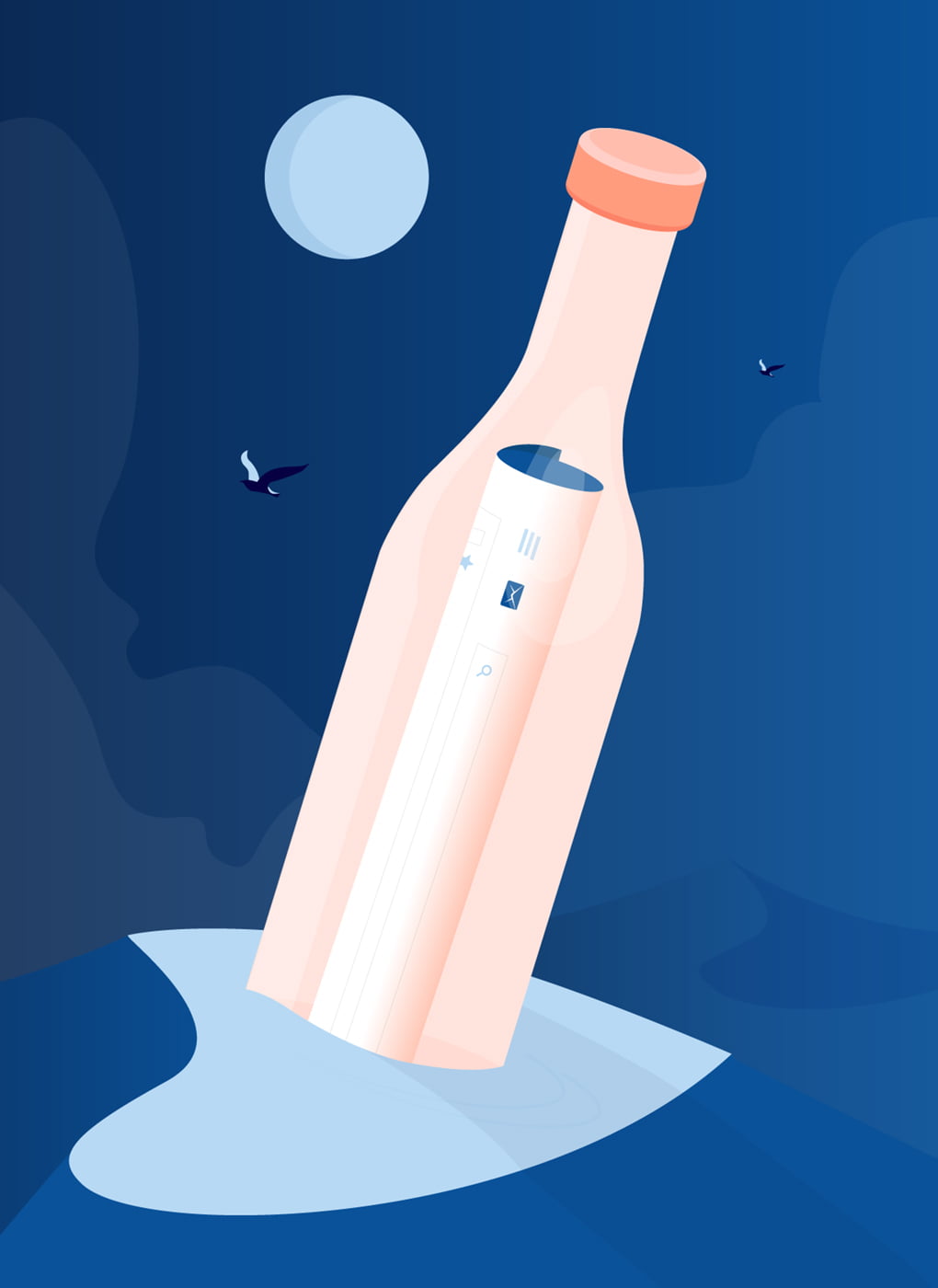
Who shapes the future of the internet?
Power
Who shapes the future of the internet?Who shapes the future of the internet?
Increasingly, power over who gets to create, shape, and profit from the internet is concentrated in an ever smaller number of hands.
The sheer power tech giants wield – from Amazon to Facebook to Alibaba – needs no introduction. The data barons of the new Gilded Age (see our interview with law scholar Frank Pasquale) control most layers of the internet and are continuously spreading their reach. Amazon is buying anything from brick-and-mortar supermarkets to healthcare companies. Google’s parent company Alphabet is redeveloping large swaths of Toronto’s waterfront and is allegedly helping the US and Chinese armies build AI-based military technology.
It is often incredibly difficult to keep these companies in check, as the lack of concrete action against Facebook in the wake of the Cambridge Analytica scandal has shown. Below, artist Roos Groothuizen has drawn diagrams that illustrate the repetitive nature of such scandals.
And yet the tide may just be turning. While some governments aggressively attempt to claw back power, others fight to empower citizens via the internet. Take hacker and activist Audrey Tang, for example, who as the first digital minister of Taiwan is an important champion of digital democracy, interviewed below.
Ordinary people are increasingly reclaiming control. Communities from Catalunya to Detroit are building their own local internet networks, cities are fighting back against Airbnb, and activist Berliners sick of gentrification successfully managed to keep Google out of Kreuzberg. Power comes in many different forms. To rebuild the internet, we must understand power – who has it, and who gets to keep it.
Also below, see our interview with Professor Shoshana Zuboff on the topic of surveillance capitalism, and a dystopian short story by author Caroline O'Donoghue, who explores what happens when power corrupts a feminist internet initiative .
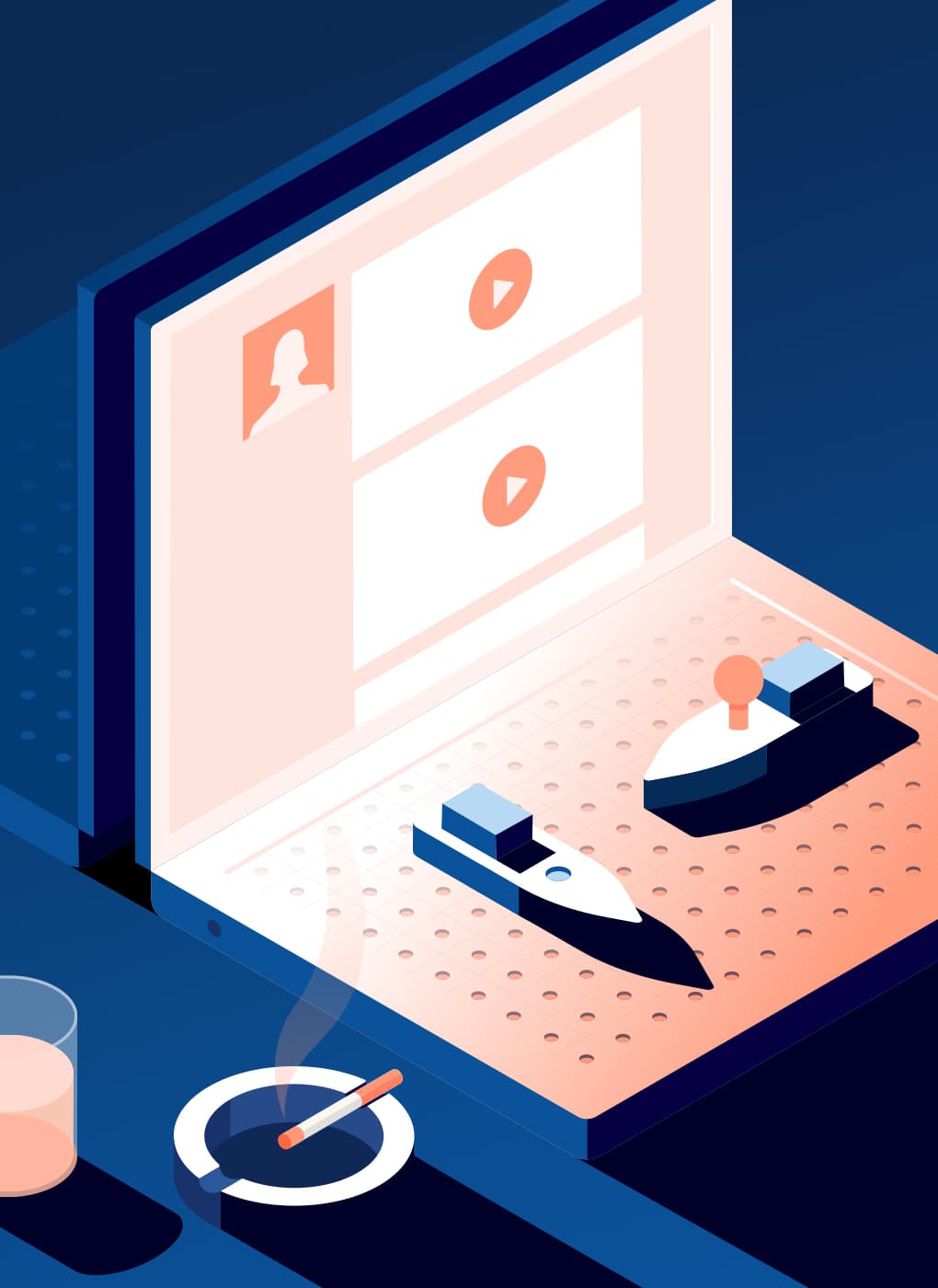
How has the internet changed society?
Shift
How has the internet changed society?How has the internet changed society?
Over the past few decades, the internet has become the most important infrastructure of our time, radically rewiring how our societies work and how we interact. We asked the BBC to find out how ordinary people feel about these changes – watch their varied answers in the video below.
It is no longer possible to live our daily lives without technology both monitoring and influencing our choices. Sensors in our supermarkets track the products we look at; our bus trips are logged and the data sold to third party apps; and the restaurants we choose are dictated by ratings on our favourite apps. Our interview with Oobah Butler, who famously got a completely fake restaurant to the top spot on TripAdvisor, shows the flaws in the systems that influence us.
There is now even an entire brand of marketing dedicated to influencing our decisions online. Below, Instagrammer Sara Melotti exposes the truth about #travel #influencers, and explains how social media shapes our identities and perceptions, often to the detriment of our mental health.
This race to get the most likes, the best reviews, and game the algorithm is not only bad for us, it is also making our societies more bland, catering to the average taste instead of emphasising originality (ever wondered why coffee shops from Tokyo to Birmingham now all look the same?). If we want to steer the direction of the internet, rather than be steered by it, we need to better understand how these invisible forces are shaping us.
Also check out our interview with Sammy Griner, who you might know as the “Success Kid”, and our Q&A with early internet pioneer Marleen Stikker.
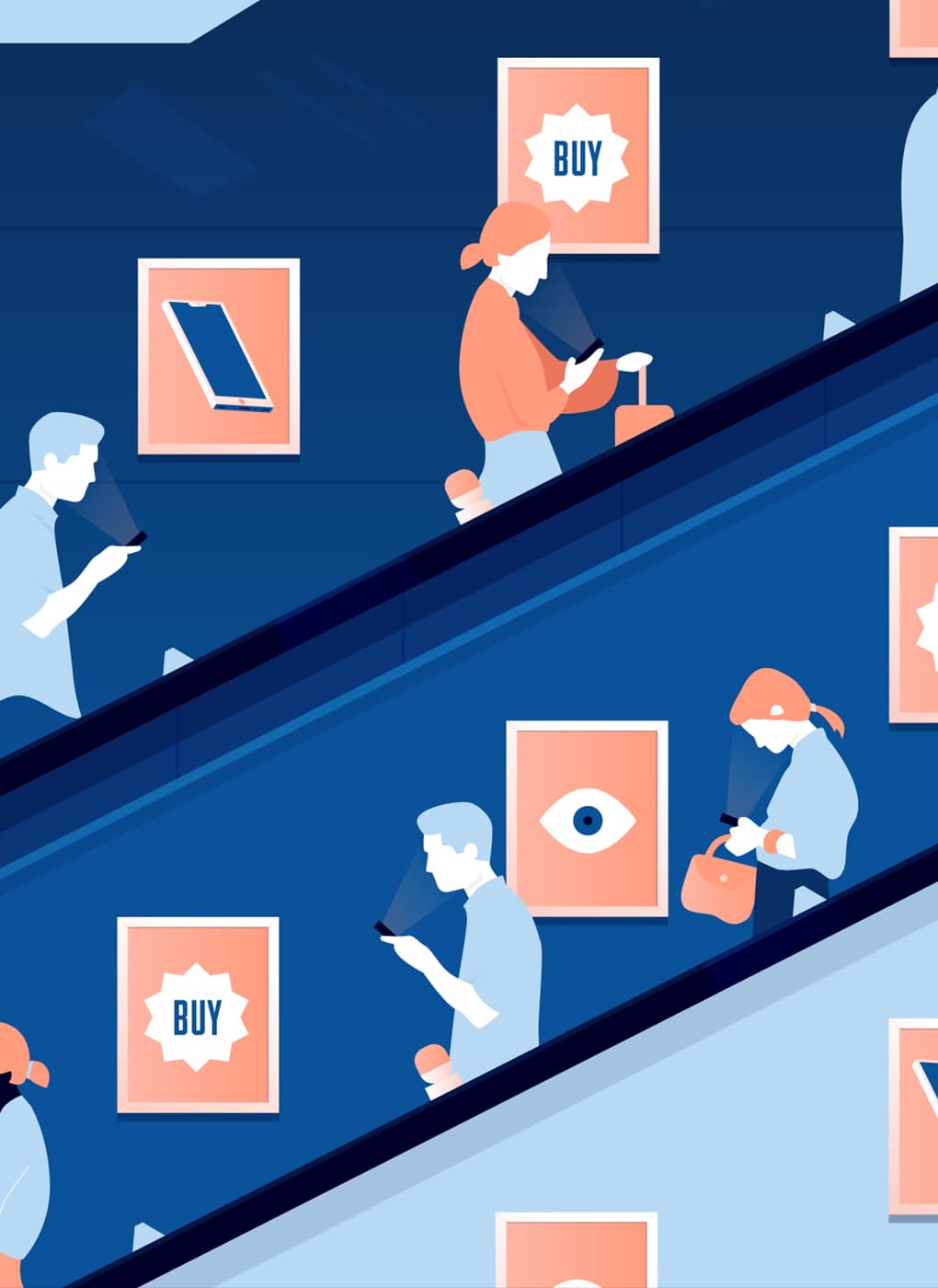
What have we lost by logging on?
Delete
What have we lost by logging on?What have we lost by logging on?
The internet was supposed to be the ultimate celebration of diversity, a platform without gatekeepers that exposed us to new ideas. Indeed, the internet has empowered many disenfranchised voices: it gave us #blacklivesmatter and #MeToo, but also provided a bigger platform to anti-vaxxers, the Flat Earth Society and #QAnon. In our interview with academic Whitney Phillips, we learn more about how the internet has become a tool for radicalisation and media manipulation.
As the internet has driven further polarisation, our societies have arguably become fractured. Author Rebecca Lynch ponders how we might fix society’s divisions in her short story “Fair Arbiters”.
Yet the problem is not just the voices we have given a platform to, but also the voices the internet is inadvertently silencing. In a comprehensive essay, Isabelle Zaugg explores the phenomenon of digital language extinction – what happens when your language isn’t supported by apps, websites, keyboards, and spell-checks. She offers solutions for a multilingual cyberspace.
Language is just one aspect of identity. Journalist Jessica Furseth’s personal piece explores how we lose our memories online. When we upload so many elements of ourselves to private platforms, what happens when these platforms disappear or change their rules?
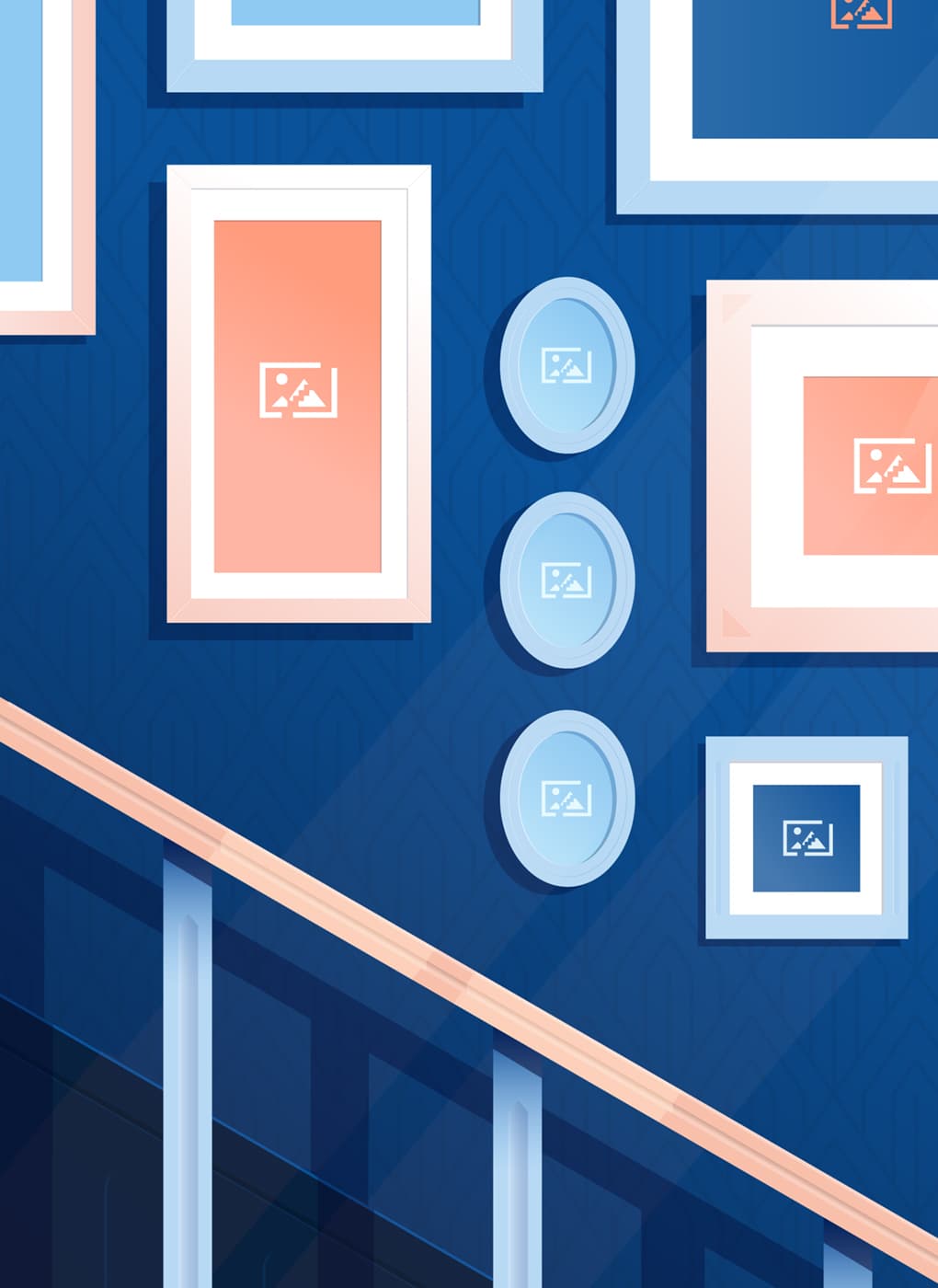
What roads didn’t we take?
Alt
What roads didn’t we take?What roads didn’t we take?
This February, we reached another important internet milestone: more than half of the world’s population is now online. Soon, another billion will join us. But though the internet’s user base is growing ever larger and more diverse, the number of internets available for us to choose from is actually shrinking.
We find ourselves stuck between two dominant narratives: a Silicon Valley model, where large companies rule supreme, and an emerging Chinese model, where the government is in charge. In our Q&A with commentator (and heavy metal artist) Kaiser Kuo, we learn more about China’s rise to a technology superpower.
But between Big Tech and Beijing, where does that leave the rest of us? Can we offer the next billion internet users something else? In an experimental video, South African artist Russel Hlongwane places Zulu cosmology, mysticism and sacred rituals within a digital framework to present an alternative view of the internet.
There are other roads we didn’t take: what if we had decided to optimise for public good rather than for profit? What if it wasn’t California that had set the tone, but some other part of the world? Academic Polina Kolozaridi’s piece looks at the internets that emerged all over Russia in the early Post-Soviet era. As we try to conceive of new narratives for the internet, what can we learn from these alternative visions?
Also below, an article exploring collective intelligence by Chief Executive of Nesta, Geoff Mulgan.
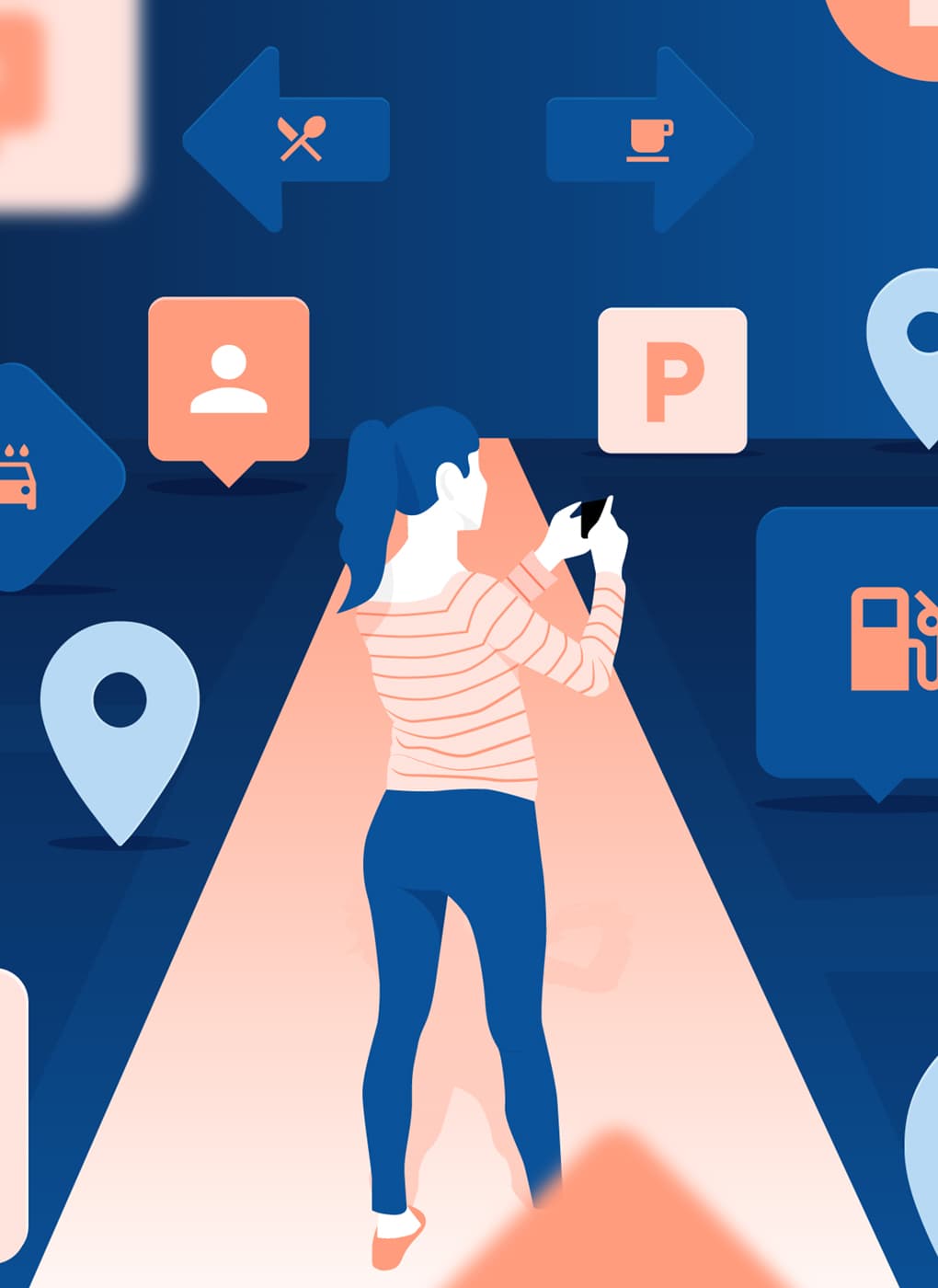
Where do we go next?
Escape
Where do we go next?Where do we go next?
Though the current trajectory of the internet does not seem to be an overwhelmingly positive one, the future has not yet been written. We can still take a different path.
It is all too easy to conceive of dystopian futures: automation threatens to take away our jobs, facial recognition systems will track and rate our every move. As governments increasingly see control over the internet as key to their survival in the 21st century, the risk of geopolitical conflict rises. Great powers will battle over who gets to be the next technology superpower – to quote Vladimir Putin, “Whoever controls AI, will rule the world”. There is potential for cyber war or a breakdown of the global internet altogether (welcome to the splinternet), but there is also potential for harmony. Former Estonian president Toomas Hendrik Ilves discusses how the internet can allow us to transcend borders.
No developments are inevitable. Rather than allowing ourselves to be petrified by dystopian scenarios, we must instead take charge of them. Below, engineer Udit Vira has imagined the internet as a living entity to challenge our perceptions of the web.
We must allow ourselves to imagine what a better world would look like, and art is invaluable here. Writer Sarah Westcott has written a poem about the internet by weaving together British school children’s perceptions of the internet while PhD student Maciej Kuziemski has written a short story eulogising the World Wide Web.
We hope the stories and artworks in this collection have made you feel more hopeful and able to take charge of the future.
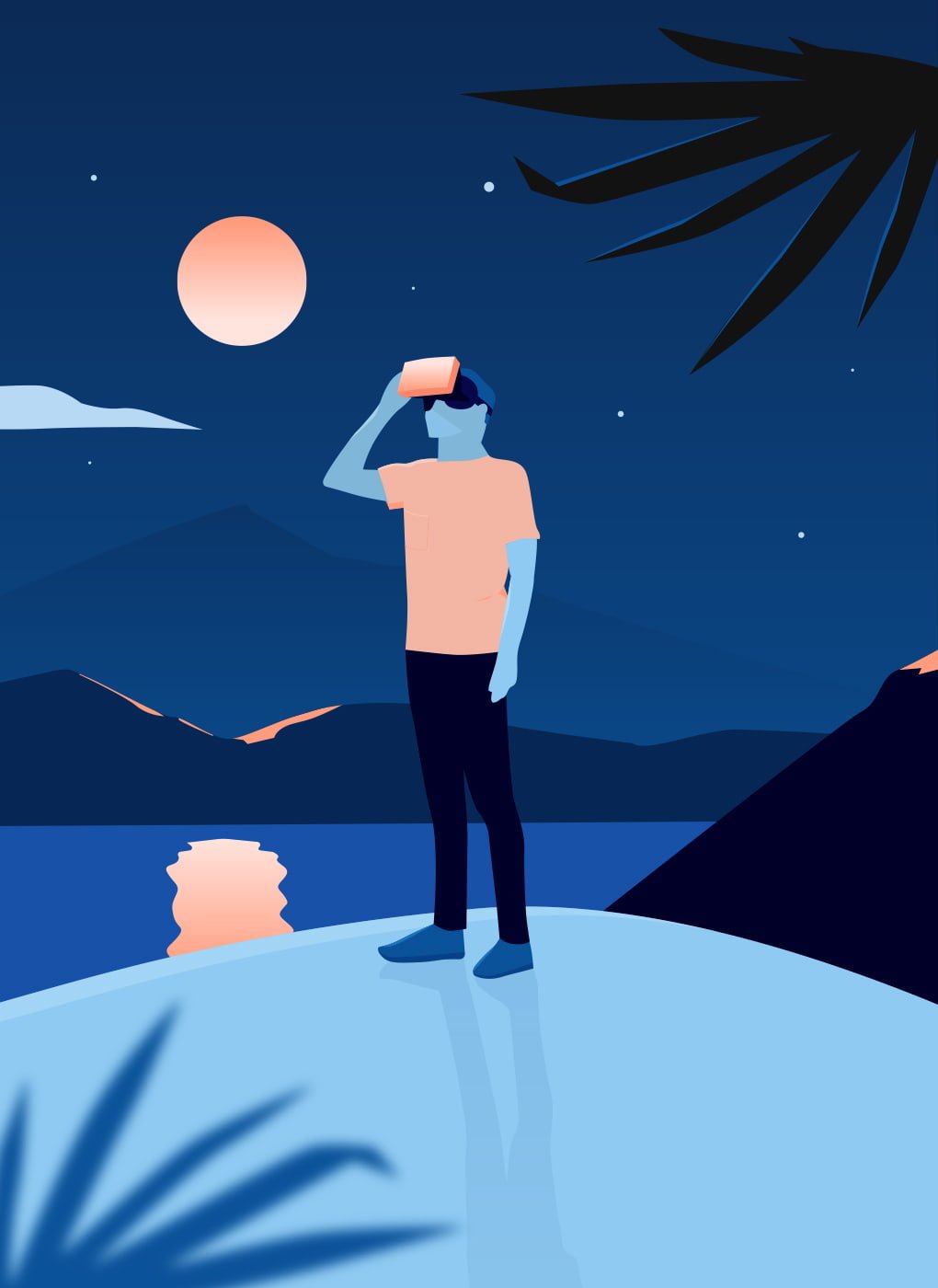
Credits:
Introductions and chapter heading text by Katja Bego.
This book was curated and edited by Caroline Back, Katja Bego and Amelia Tait. Interviews conducted and edited by Amelia Tait.
Website design and development by ToyFight.
Acknowledgments:
This project was created as part of the Next Generation Internet initiative funded under the EC H2020 project EU Engineroom, Grant Agreement 780643.